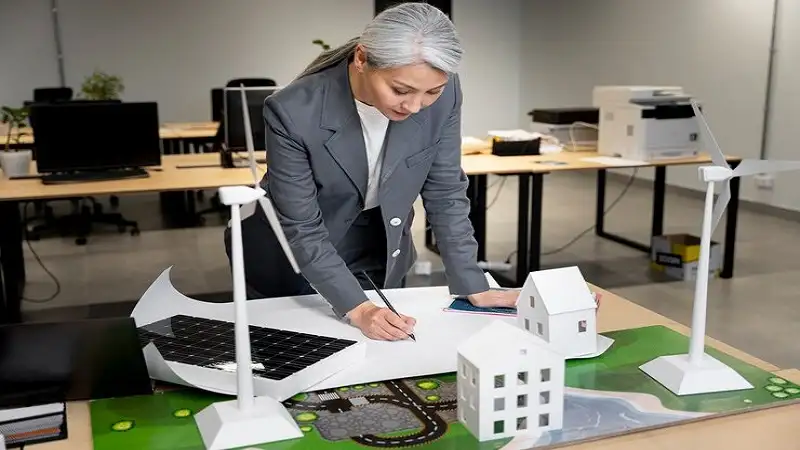In an age where energy conservation is paramount, upgrading to a smart home can significantly enhance energy efficiency. Smart home technologies not only provide convenience but also reduce energy consumption and costs. This article explores various smart home upgrades that can lead to substantial savings and environmental benefits.
1. Understanding Energy Efficiency in Smart Homes
Energy efficiency refers to using less energy to perform the same task or activity. In the context of smart homes, this means integrating technologies and systems that optimize energy consumption. Smart devices can monitor and adjust energy usage in real-time, leading to significant reductions in energy waste.
Benefits of Energy Efficiency
- Cost Savings: Reduced energy consumption translates to lower utility bills.
- Environmental Impact: Decreased energy use results in a smaller carbon footprint.
- Comfort and Convenience: Smart technologies enhance user comfort while maintaining efficiency.
2. Smart Thermostats: A Game Changer
One of the most impactful smart home upgrades is the installation of a smart thermostat. Unlike traditional thermostats, smart thermostats can learn your schedule and adjust the temperature accordingly.
Key Features of Smart Thermostats
- Learning Algorithms: These devices learn your heating and cooling preferences and adjust settings automatically.
- Remote Control: Users can control their thermostat from anywhere using a smartphone app, allowing for adjustments when away from home.
- Energy Usage Reports: Many smart thermostats provide insights into energy usage, helping homeowners identify patterns and areas for improvement.
Cost Savings
Smart thermostats can save homeowners 10-20% on heating and cooling costs annually, making them a worthwhile investment.
3. Smart Lighting: Efficiency at Your Fingertips
Upgrading to smart lighting is another effective way to enhance energy efficiency in your home. Smart bulbs and lighting systems allow you to control your lighting with precision.
Benefits of Smart Lighting
- Remote Access: Control your lights from your smartphone, even when you’re not home.
- Dimming and Scheduling: Adjust brightness levels and set schedules to reduce energy consumption during off-peak hours.
- Motion Sensors: Automatically turn off lights when a room is unoccupied.
Energy Savings
Switching to smart LED bulbs can reduce lighting energy consumption by up to 80%, leading to significant savings over time.
4. Energy Monitoring Systems: Know Your Consumption
An energy monitoring system provides real-time data on your home’s energy usage, allowing you to make informed decisions about your consumption.
Features of Energy Monitoring Systems
- Real-Time Data: Monitor energy usage in real-time for different appliances and systems.
- Alerts: Receive notifications if energy consumption exceeds a certain threshold.
- Historical Data: Review historical energy usage trends to identify areas for improvement.
Impact on Energy Efficiency
By understanding your energy consumption patterns, you can adjust usage to minimize waste, leading to substantial savings.
5. Smart Appliances: Efficiency Meets Innovation
Investing in smart appliances can significantly enhance your home’s energy efficiency. These appliances are designed to use less energy while maintaining high performance.
Examples of Smart Appliances
- Smart Refrigerators: These models monitor their contents and adjust cooling levels to reduce energy use.
- Smart Dishwashers: They can run during off-peak hours and optimize water and energy usage based on load size.
- Smart Washers and Dryers: Many can be programmed to run during low-energy cost periods, saving money and energy.
Benefits of Upgrading
Smart appliances can reduce energy consumption by 10-50%, depending on the type of appliance and usage patterns.
6. Smart Blinds and Shades: Passive Energy Management
Smart blinds and shades are an innovative way to enhance energy efficiency by optimizing natural light and temperature control.
How Smart Blinds Work
- Automated Control: These blinds can be programmed to open or close based on the time of day or temperature, maximizing natural light while minimizing heat gain.
- Integration with Smart Thermostats: When paired with smart thermostats, they can work together to maintain optimal indoor temperatures.
Energy Efficiency Benefits
By controlling heat gain and loss, smart blinds can help reduce reliance on heating and cooling systems, resulting in lower energy bills.
7. Smart Home Hubs: Centralized Control for Efficiency
A smart home hub acts as the central command center for all your smart devices. This technology enables seamless integration and control of various systems in your home.
Features of Smart Home Hubs
- Device Integration: Connect and control multiple smart devices from different manufacturers.
- Automation: Set up routines that optimize energy use, such as turning off lights when leaving home or adjusting the thermostat at night.
- Remote Access: Control your home’s energy systems from anywhere via a smartphone app.
Benefits of Using a Smart Home Hub
Centralized control allows for better coordination among devices, leading to improved energy management and efficiency.
8. Solar Energy Solutions: Harnessing Renewable Energy
Integrating solar energy solutions is an excellent way to boost energy efficiency while reducing reliance on traditional energy sources.
Types of Solar Energy Solutions
- Solar Panels: Generate electricity from sunlight, which can power your home and reduce energy costs.
- Solar Water Heaters: Use solar energy to heat water, which is especially useful for homes with high hot water demands.
Long-Term Benefits
While the initial investment in solar solutions can be high, the long-term savings on energy bills and potential tax incentives make it a financially savvy decision.
9. Smart Security Systems: Safety with Energy Efficiency
Smart security systems contribute to energy efficiency while providing peace of mind. These systems can monitor energy usage and enhance security.
Features of Smart Security Systems
- Smart Cameras and Sensors: Monitor activity in and around your home, which can help identify energy-wasting behaviors (e.g., leaving lights on).
- Automated Lighting: Program outdoor lights to turn on at sunset and off at sunrise, conserving energy.
Energy Efficiency Benefits
By monitoring and controlling energy usage, smart security systems can help reduce waste and enhance overall efficiency.
10. Conclusion: Embracing the Smart Home Revolution
Upgrading to a smart home presents numerous opportunities to enhance energy efficiency. From smart thermostats and appliances to energy monitoring systems and solar solutions, these upgrades can lead to significant savings and a reduced environmental impact.
Taking the Next Steps
As you consider smart home upgrades, evaluate your current energy consumption patterns and identify areas for improvement. Investing in smart technologies not only contributes to a sustainable future but also enhances comfort and convenience in your daily life. Embrace the smart home revolution and enjoy the benefits of a more energy-efficient lifestyle.

